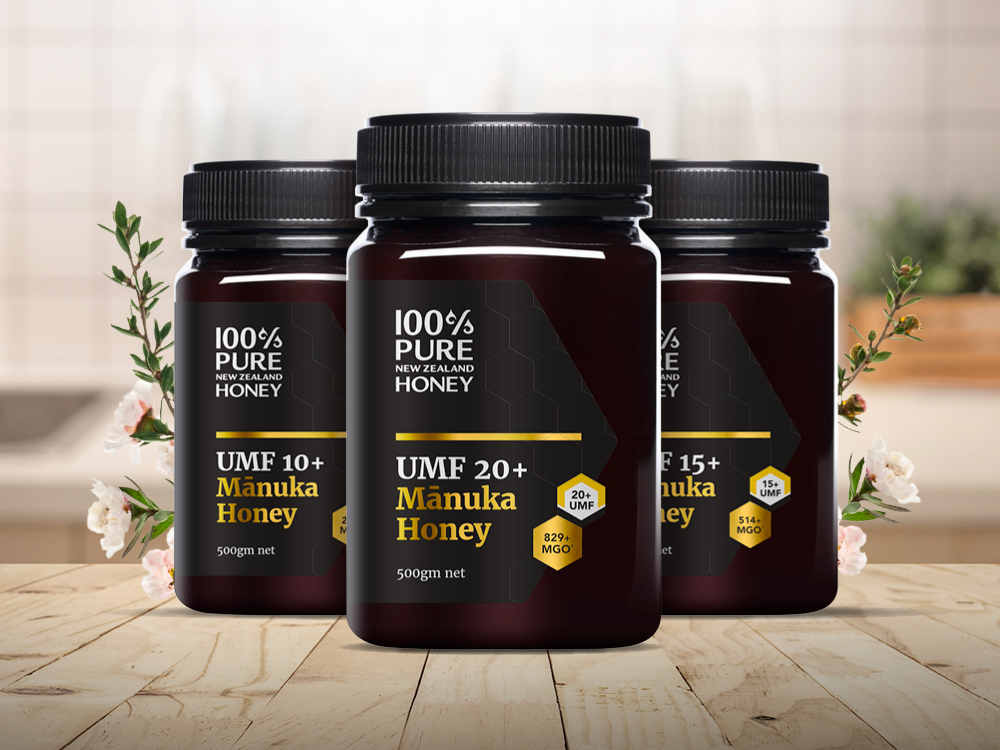What you can do to give your wellbeing the best possible support.
Your immune system is a complex network of cells, tissues, and organs that work together to protect your body from illness and help it recover. The effects of lifestyle on our immune system and vice versa - how lifestyle can enhance immunity - is still a speculative area of science, so the best way to give it a helping hand is with simple and common healthy-living strategies.
Are any foods proven to help immunity?
It is difficult to know for sure and perhaps the best way to find out is to try and see what you find beneficial. But there are a few well-known and easy-to-find natural ingredients that people have turned to for wellbeing for centuries.
- Garlic: as well as being a pre-biotic, people have valued garlic’s infection-fighting properties for generations; it is believed to come from a heavy concentration of sulfur-containing compounds.
- Ginger: believed to be good at helping decrease inflammation.
- Honey: long recognised as having unique properties that can assist with wellbeing, honey provides a mix of minerals including calcium, magnesium and phosphorus, as well as enzymes and trace elements of iron and zinc.
- Mānuka honey also contains a unique compound - methylglyoxal (MGO) – which has been the subject of research into antioxidant and antibacterial properties. Look for a mānuka honey with a high UMF rating for a good shot of MGO. Like our UMF15+ (which has an MGO level of >514mg/kg).
We get a lot of great feedback on our Mānuka range, especially when it comes to cold and flu season. One of our users had this to say “I liked that the manuka honey containing ginger and lemon flavour was mild. Noticeable and enjoyable but not overpowering. I enjoyed it with my green tea when fighting off a cold”. Have you ever thought of adding honey to an antioxidant rich drink like green tea?

Can your diet help your immune system?
Being properly nourished is widely accepted as necessary for supporting a healthy immune system. To ensure you are eating a variety of nutrients, enjoy a colourful plate. The different colours in fruits and veg are the result of its specific phytonutrients and each colour indicates an abundance of specific nutrients. There is a fun colour chart with more information here.
Is there a link between gut health and immunity?
Be good to your gut; it turns out that is where more than 70% of the cells that make up your immune system are! To ensure you have good levels of the right kind of bacteria keeping your gut healthy, you may want to try introducing pre- and pro-biotics into your diet.
Pro-biotics are friendly bacteria – foods (often fermented) include sauerkraut, kimchi, kefir, kombucha, miso, some yoghurts, sourdough, tempeh and some alcoholic beverages.
Pre-biotics are foods those bacteria live on – including garlic, onions, leek, asparagus, Jerusalem artichoke, apples, bananas, barley, oats and flaxseed.
Does alcohol help or hinder immunity?
The general rule of thumb is to enjoy in moderation but be wary. Research shows too much booze puts a dampener on your immune response, leaving you more at risk of catching something.
Why is regular exercise important for good immunity?
Regular exercise improves cardiovascular health, lowers blood pressure, helps control body weight and protects against a variety of diseases. Because it contributes to good overall general health it is therefore also good for supporting a healthy immune system. There’s even suggested that because exercise helps good circulation, this allows the immune system’s cells and substances to move more efficiently through your body.
Why you need enough sleep to stay well and recover quickly
Your body needs sleep for many reasons, including to fight infection. Without good sleep, antibody production slows down – these are the key infection-fighting cells in your immune system. Sleeping also produces protective proteins we need called cytokines. How much sleep you get also relates to how quickly you recover from illness.
Can stress impact your immune system?
More and more modern medicine is acknowledging the link between mind and body. During times of stress, hormones such as cortisol, adrenaline and others are released into the body. Normally these are to help it cope and they serve an important purpose. But when stress is prolonged, those hormones can begin to work against you and affect the way the body functions. Some good ways to try to reduce stress include meditation, yoga, acupuncture, talk therapy, art therapy and exercise. Also, having a good laugh helps relieve stress as it releases dopamine and other feel-good chemicals in the brain.
Wash your hands!
Finally, something we’re all now familiar with, vigorous hand washing for 20+ seconds helps prevent infection rather than supporting your immune system directly. But you know what they say – prevention is better than the cure!
Whether you find laughter to be the best medicine or the magic of manuka honey’s methylglyoxal, this information is provided to help you make informed diet decisions and is not intended to replace professional medical advice.

